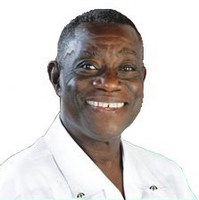In recent weeks there has been a notable -- and positive -- political event in Africa that does not involve the disaster zones of Somalia, Sudan, or Zimbabwe. On Jan. 7th, John Atta Mills, the candidate from the opposition National Democratic Congress (NDC) party, was inaugurated as Ghana's president. He won a Dec. 28 runoff with 50.23 percent of the vote, beating Nana Akufo-Addo, representing the ruling New Patriotic Party (NPP), who won 49.77 percent. This election was clear evidence that Ghana's democracy continues to mature. Despite the razor-thin win by the opposition candidate, there was no eruption of political violence, such as the violence which followed Kenya's disputed election exactly one year ago. This was not the first time in Ghana that the ruling party has peacefully transferred power to the opposition. In the 2000 election, The NDC government, led by then-President Jerry Rawlings, lost and peacefully transferred power to its opponent, the NPP, led by John Kufuor, Ghana's outgoing president. Ghana has come a long way since being the first African country to achieve independence and democratic rule in 1957. By 1966, the military had overthrown President Kwame Nkrumah, and it wasn't until 1992 that Rawlings, then Ghana's military ruler, lifted the ban on political parties and held elections.
Ghana’s Democracy Continues to Mature

